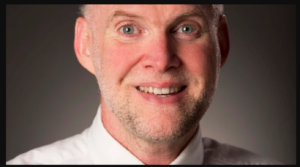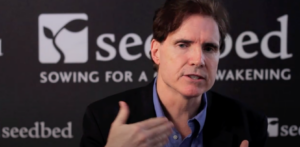Since August of last year, some 1,200 clergy and laypersons have become invested in a renewal organization within the United Methodist Church called the Wesleyan Covenant Association. The WCA garnered some notice because of the timing of its unveiling, though actually it has been in the works for several years. The inaugural event in Chicago last October galvanized two thousand people around the prospect of “the next Methodism” and that idea has captured our collective imagination.
The obvious fact is that the UMC is in crisis but we all know that for imaginative people, a crisis is an opportunity in disguise. What opportunity does this crisis provide our faith tradition? What kind of renewal could rise from the ashes? If the UMC is heading for a significant change anyway (and it is), what would we want to emerge on the other side?
Those are the kinds of questions being asked in gatherings and conversations around the country. With such energy, we have the opportunity to shape the next Methodism. This is the very hope fueling the formation of the WCA. If you are new to the table, what five things might help you get into the conversation?
Our first love is Jesus. Every person at the WCA table is there because they believe the Church is the hope of the world. However, as faithful as we want to be to the United Methodist expression of that Church, I don’t know of a person centrally involved in the WCA who is clinging to institutional salvation. We all care a lot about the UMC — enough to invest in this work — but the glue that holds us together is Jesus. Our confidence is in Christ. Our covenant within the United Methodist Church is founded on its Articles of Religion, which profess an orthodox understanding of this gospel. Those foundational articles are grounded in Christ as the exclusive savior of the world. Those who remain connected must insist on a relationship built on integrity and true accountability around the confession of Jesus as the center of our gospel and foundation of our faith (Articles II and III). Likewise, we trust the authority of Scripture, which “contains all things necessary for salvation” (Articles V and VI).
Our goal is to breed confidence for the future. Last year’s General Conference set in motion a process designed to give the UMC a way forward. We want to trust both that process and God’s timing. We urge churches, clergy and laypersons to let the system do its work. Hang in there. Stay focused in this “already and not yet” season on the good work of your local church. We can be honest about what we suspect. There will likely come a day in the UMC when we all have to make a mature and hard choice, peacefully admitting that we are better off heading our separate ways. But timing is everything. Let’s let the system do its work so we can say on the other side of this that we stayed the course as faithfully and as transparently as we knew how. Meanwhile, the WCA exists as a good landing place, an advocate, and a supportive partner that is allowing hope to have its power. We are leaning into what can be.
We love people. Every person at the WCA table is there because we believe the Church is the hope of the world and every one of us has a heart for the eleven million people who call themselves United Methodist (not to mention the seven billion who call themselves human). God so loved the world and we are motivated by that love. We are in this because we genuinely care about connecting people with the heart of Jesus and we believe solid, orthodox Wesleyan theology is the best conduit for making that connection. That’s what made us Methodists in the first place; that passion hasn’t changed.
We believe that for the gospel to be true, it must be global. Methodists are incarnational and global in our approach to evangelism. We seek partnership with those within the Wesleyan tradition around the globe, not just as people on the receiving end of mission activities but as fully invested members of this expression of faith. The WCA has had remarkable support from leaders in other countries, and we have invited representatives from each Central Conference to join our Council. We reject any revision of our structure that separates our connection geographically because we believe in the global nature of the gospel and the Great Commission.
We are here for the long haul. The existence of the WCA does not hinge on one vote at one General Conference. Folks, our issues are far deeper, our institutional divisions far wider, our concerns far more grave than the substance of one vote. Our intention is to build a bridge from what we have to what can be. That kind of vision will take years to live out but we are committed for the long haul. The WCA is here to stay.
When new things get started, getting off the ground can be a little bumpy. Since our first gathering of the WCA last October, it has been like drinking water from a fire hose. To build a thing that stands the test of time takes a tremendous amount of effort — developing systems, making budgets, writing (and re-writing) by-laws, making hiring decisions, talking theology, creating communication systems. And prayer … a lot of prayer. This is not a short-term fix.
As we’ve said often in these early conversations, let’s not waste a crisis. The UMC is in need of renewal. No one on any side of the equation should be in this to “win” on one issue so we can all go back to business as usual. Let’s shoot for something more noble, more grand — to see the Kingdom of God manifest within the Body of Christ on earth for the sake of the redemption of the world.
When that happens, we can all go home to the unhindered presence of Christ. And oh, what a glory that will be.








